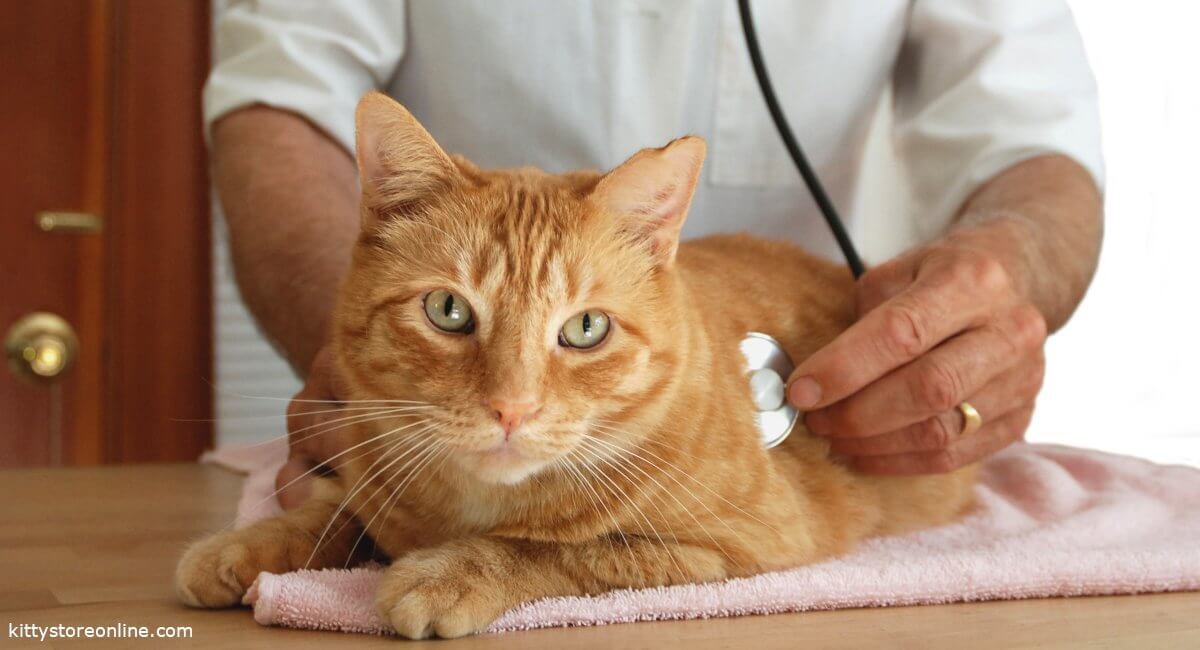Asthma in cats is a chronic respiratory disease that can affect the lives of many felines. As in humans, feline asthma leads to shortness of breath, coughing and other symptoms that can significantly reduce quality of life.
What does asthma mean in cats?
Asthma in cats is an inflammatory disease of the airways. It causes constriction of the bronchial tubes, which leads to shortness of breath and wheezing noises. This disease is similar to asthma in humans and is often chronic. Without treatment, the disease can progress and cause dangerous asthma attacks, and not every respiratory disease is the same as asthma. There are numerous diseases, such as bronchitis, which can cause similar symptoms. This is why an accurate diagnosis by a vet is crucial.
How common is asthma in cats?
Asthma in cats is relatively rare, but affects a large number of breeds. It is particularly common in Siamese cats and other oriental breeds. However, mixed breed cats can also be affected. It is estimated that around 1 % to 5 % of all cats worldwide suffer from asthma.
Cats that live in cities or regions with high levels of air pollution have a higher risk. Cats that are exposed to cigarette smoke or other pollutants are also more likely to fall ill.
Causes and triggers of asthma in cats
What are the most common causes of asthma in cats?
The exact causes of asthma in cats have not yet been fully researched. However, it is suspected that allergies play a central role. Cats are sensitive to pollen, house dust mites and mold spores. These can irritate the airways and trigger an inflammatory reaction, while genetic predisposition is another factor. Cats with a family history of allergies or respiratory diseases are particularly at risk. Infections of the respiratory tract or environmental influences such as cigarette smoke and chemicals can also trigger the disease.
What triggers can exacerbate asthma in cats?
Certain triggers can worsen the symptoms of feline asthma. These include stress, sudden weather changes and a dusty environment. Cat litter with fine dust is particularly problematic as the particles can be inhaled and irritate the bronchial tubes, and household cleaners, perfumes or scented candles can also have negative effects. Cat owners should therefore try to avoid such potential irritants in order to minimize their cat’s asthma attacks.
Can allergies trigger asthma in cats?
Yes, allergies are one of the main causes of asthma in cats. Cats are particularly sensitive to dust mites, pollen and mold spores. These allergens are often difficult to avoid, which is why long-term treatment is necessary.
Symptoms and diagnosis of feline asthma
Symptoms of asthma in cats
The symptoms of asthma in cats can vary, but are often easy to recognize. Typical signs include coughing, wheezing and shortness of breath. Some cats only show symptoms in certain situations, such as during physical exertion, and in severe cases an asthma attack can occur in which the cat gasps for air. Such attacks can be life-threatening and require immediate medical attention.
How is asthma diagnosed in cats?
The diagnosis of asthma in cats requires a thorough examination by the vet. X-rays of the lungs are often taken to detect inflammation or narrowing of the airways. Blood tests can help to rule out allergies or infections.
In some cases, a bronchoscopy is also performed, in which the airways are examined directly. This method is more invasive, but provides accurate results.
Treatment and therapy of asthma in cats
Medication and therapies
The treatment of asthma in cats aims to alleviate the symptoms and improve the quality of life. The vet often prescribes cortisone to reduce the inflammation of the airways. In addition, bronchodilators can be used to dilate the bronchi and make breathing easier, and inhalation therapy is a popular method. A special inhaler is used to deliver the medication directly into the cat’s lungs. This method is particularly effective and has fewer side effects than tablets.
How is an asthma spray used in cats?
Applying an asthma spray to cats requires some practice. Special masks for cats help to deliver the medication to the lungs efficiently. It is important to get the cat used to the mask slowly and to keep it calm during the treatment.
Alternative treatment options
In addition to traditional treatment, there are also alternative approaches. These include adjusting the diet to minimize allergies. Some pet owners also use acupuncture or homeopathic remedies. However, these methods should always be agreed with the vet.
Living with a cat who has asthma
Cats with asthma can lead a happy life despite their illness. The important thing is to minimize the triggers and check the cat regularly. A clean environment that is free of dust and pollutants can make a big difference.
What should I do if my cat has an asthma attack?
An asthma attack in cats is an emergency. Stay calm and try to reassure the cat. Take the cat to the vet immediately if the breathing does not improve. It is helpful to discuss an emergency plan with the vet.
Measures to prevent asthma attacks
To prevent asthma attacks, cat owners should minimize the triggers. This includes using dust-free cat litter, removing carpets and using an air purifier. Regular visits to the vet are also important to monitor the cat’s health.
Long-term quality of life
Cats with asthma can often lead a long and fulfilling life. With the right treatment and an adapted environment, most symptoms can be well controlled. It is important to observe the cat closely and react immediately to any changes.
